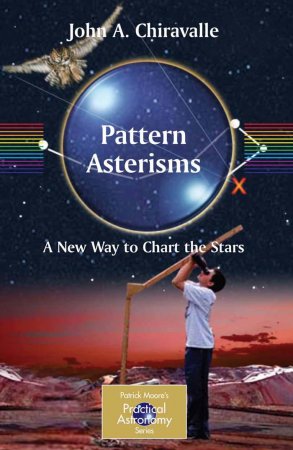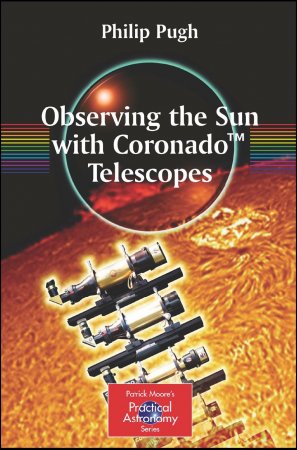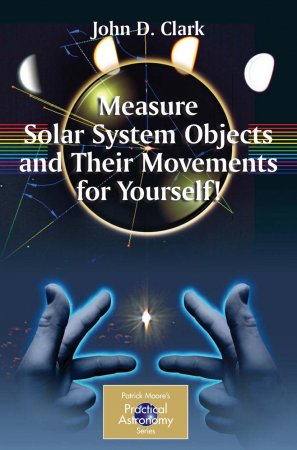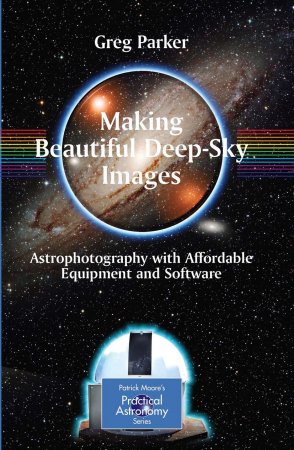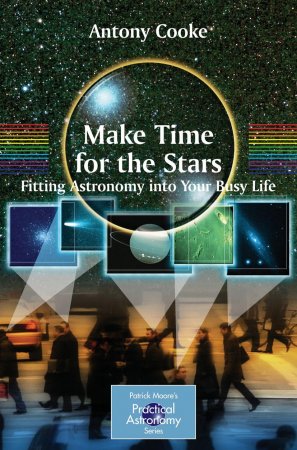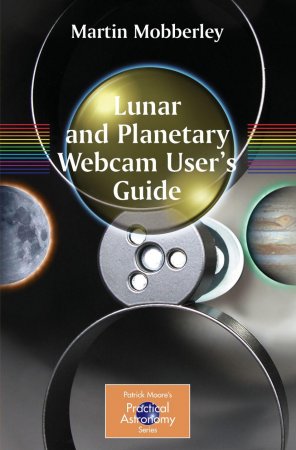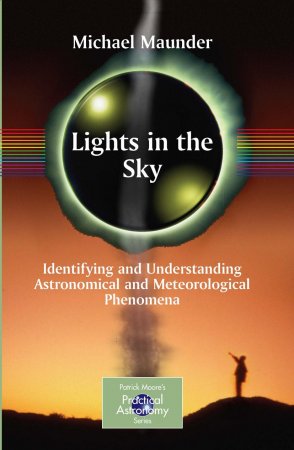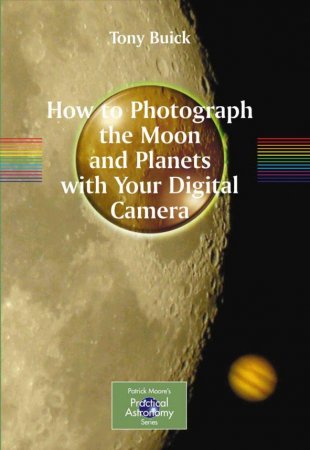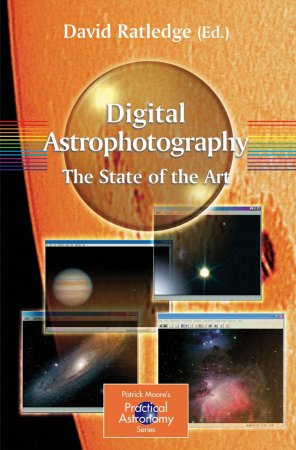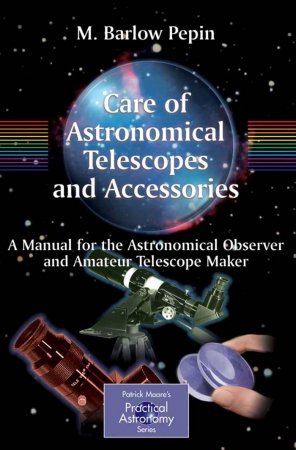НавигацияАрхив новостейСтатистика |
Pattern Asterisms: A New Way to Chart the StarsSince the very beginning of astronomy, people have looked up sky and constructed patterns the constellations out of the almost random scattering of stars in the night sky. The fact that the constellations are still used to day reflects not their historical origins, but their usefulness in identifying bright stars in the rotating dome of the sky. Most people (and all astronomers) are familiar with, for example, the constellation of Orion and can thus easily point to Betelguese and Bellatrix as being Orion’s "shoulders". It is the pattern made by the constellation that makes them easy to identify. What applies to big groups of stars can also be applied to smaller ones, and this book provides a set of memorable mini-constellations to help in identifying and remembering stars in the binocular or low magnification telescopic field. Suitable for observers using binoculars and medium size telescopes, this catalog includes star pictures, dot-to-dot outlines of the objects ( on a negative photograph for clarity ), and an artistic image next to the star patterns. Size, stellar magnitudes, and coordinates are provided, along with north direction, star-hopping instructions & Sky Atlas 2000 references. There are sixty-seven "pattern asterisms" in this catalog. Most are easy to see in sixty millimeter binoculars, and few are what observers describe as "challenging". The imaginative observer will surely begin to develop a new insight into star patterns, and will start seeing patterns of his own, under this catalog's influence! Measure Solar System Objects and Their Movements for Yourself!Instead of taking somebody's word for it about the basic size and distance statistics for the solar system, this book shows amateur astronomers how to measure these things for themselves. This is an enriching experience for any amateur astronomer - to understand and personally measure some fundamental astronomical quantities and distances. Making Beautiful Deep-Sky Images: Astrophotography with Affordable Equipment and SoftwareThis book is based around the author’s beautiful and sometimes awe-inspiring color images and mosaics of deep-sky objects. The images were used as the basis of a public exhibition held at the University of Southampton (Summer 2006), attended by the press, local radio and TV interviewers as well as the public. The book describes how similar images can be created by amateur astronomers, using commercially available telescopes and CCD cameras. Subsequent processing and image enhancement in the “electronic darkroom” is covered in detail as well. Not everybody can afford the biggest and best telescopes and CCD cameras, so a range of telescopes and equipment is considered, from the author’s 11-inch with Hyperstar camera, down to more affordable instruments. Appendices provide links to free software – not available from a single source – and are themselves an invaluable resource. Make Time for the Stars: Fitting Astronomy into Your Busy LifeMany amateur astronomers are short of time. A full-time career usually takes up most waking hours, and there very often simply isn’t time for leisurely observing sessions, at least a few hours’ sleep being something of an imperative during the week. Fortunately, modern technological advances such as computer-controlled telescopes equipped with GPS, north-seeking and level detection, have made setting up a telescope much quicker. Today’s imaging systems enable time-pressed astronomers to take excellent astrophotographs of many objects without the hours-long exposures that used to be a feature of this aspect of astronomy. This book explains what to attempt in a short timescale (and what not to), and how to use today’s top-value commercially-made equipment to get the most astronomy out of the least time. Lunar and Planetary Webcam User's GuideIn the last few years, cheap webcams have revolutionized amateur astronomy by providing a very inexpensive alternative to purpose-made astronomical CCD cameras, which use refrigerated imaging chips and are thus extremely expensive. Webcams are capable of more advanced work than ‘normal’ digital cameras because their simple construction makes it easy to remove the webcam’s lens, allowing it to be interfaced directly to a telescope. Using a webcam is not difficult but most amateur astronomers who have tried to do this do not achieve the finest results, despite the webcam’s potential. There are numerous imaging and image processing tricks and techniques, and all of them are needed to get the best results. Lights in the Sky: Identifying and Understanding Astronomical and Meteorological PhenomenaMany lights and other objects in the sky go unrecognised, or at least are little understood by those observing them. Such things range from the commonplace like rainbows and meteors, to the distinctly unusual like the green flash and ball lightning. And there is still a residuum of objects that remain unidentified by the watcher – classed generally as ‘UFOs’, a description which today has connotations of the mysterious, even of extraterrestrial visitors. How to Photograph the Moon and Planets with Your Digital CameraSince the advent of astronomical CCD imaging it has been possible for amateurs to produce images of a quality that was attainable only by universities and professional observatories just a decade ago. However, astronomical CCD cameras are still very expensive, and technology has now progressed so that digital cameras – the kind you use on holiday – are more than capable of photographing the brighter astronomical objects, notably the Moon and major planets. Digital Astrophotography: The State of the ArtThe CCD (Charge-Coupled Device) has revolutionised optical astronomy during the past 20 years, and specialised astronomical CCD cameras are now even more affordable, colour is standard, and they provide spectacular results. Digital Astrophotography: The State of the Art, provides some examples of the best images, and gives readers hints and tips about how to get the best out of this extraordinary technology. Care of Astronomical Telescopes and Accessories: A Manual for the Astronomical Observer and Amateur Telescope MakerCommercially-made astronomical telescopes are better and less expensive than ever before, and their optical and mechanical performance can be superb. When a good-quality telescope fails to perform as well as it might, the reason is quite probably that it needs a little care and attention! Here is a complete guide for anyone who wants to understand more than just the basics of astronomical telescopes and accessories, and how to maintain them in the peak of condition. The latest on safely adjusting, cleaning, and maintaining your equipment is combined with thoroughly updated methods from the old masters. Here, too, are details of choosing new and used optics and accessories, along with enhancements you can make to extend their versatility and useful lifetime. This book is for you. Really. Looking after an astronomical telescope isn’t only for the experts - although there some things that only an expert should attempt - and every serious amateur astronomer will find invaluable information here, gleaned from Barlow Pepin’s many years? Experience working with optical instruments. |
ПопулярноеОпросОцените дизайн сайта
Немного рекламы |
